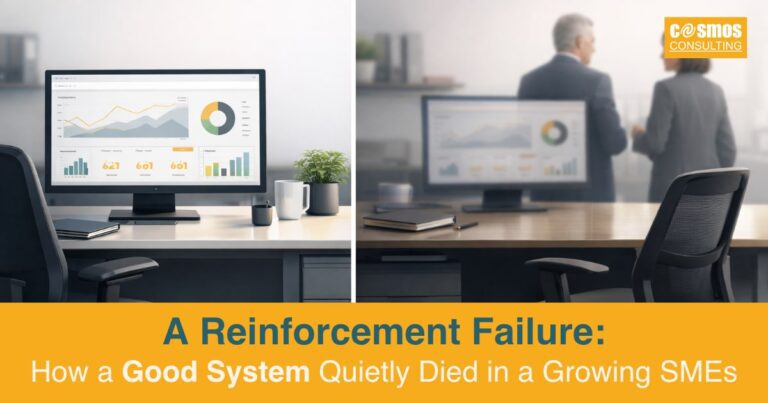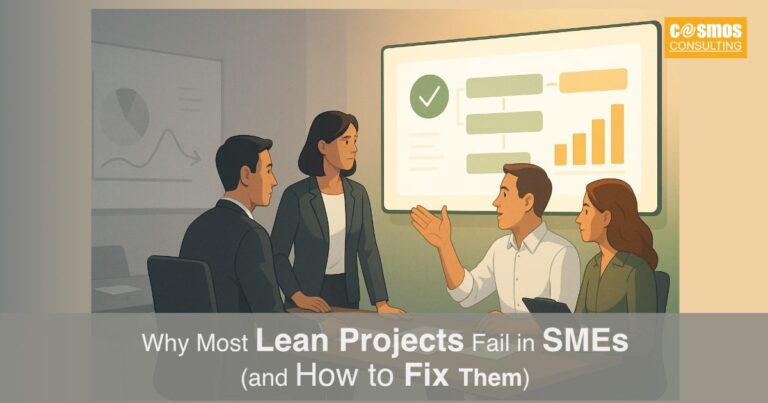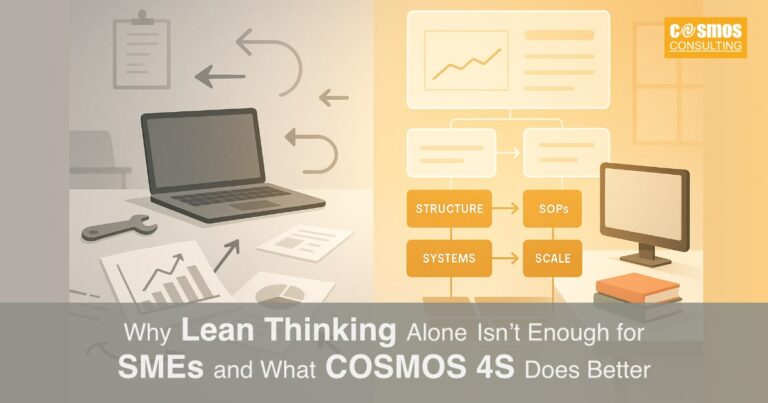🔰 Introduction: The Myth of Scaling
“Scaling” sounds exciting: fast growth, new clients, a bigger team, better tools.
But for most SME founders, scaling doesn’t feel like success. It feels like exhaustion.
Instead of freedom, it brings more approvals.
Instead of clarity, more questions.
Instead of relief, more reminders.
At Cosmos Consulting, we see this play out all the time:
Founders strive to scale SME Operations without burnout before the business is ready to handle it.
That is why we created “COSMOS 4S SME Systems Framework™,” a step-by-step approach to help lean businesses prepare for growth without breaking under pressure.
💡 This is the fourth step of the COSMOS 4S Systems Framework™, a practical approach to systemising your SME without chaos.
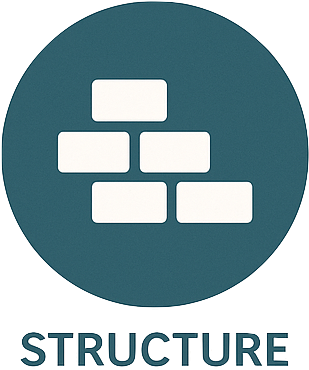
Define roles, workflows, and tools
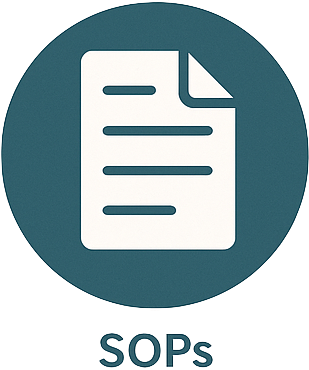
Document how work gets done
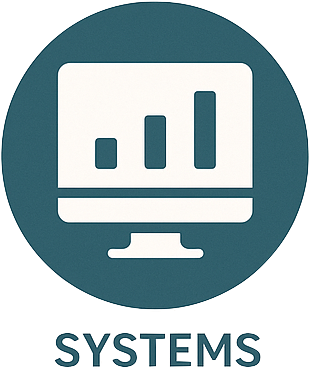
Build tech, templates, or automations
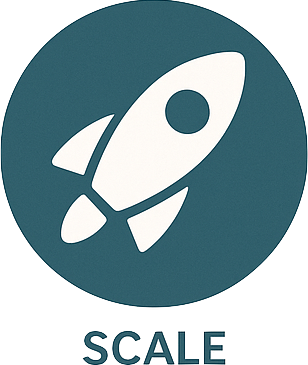
Delegate with clarity and track performance
Let us do a quick recap of the first three “S”:
- Structure: Clarify who is doing what
- SOPs: Standardize how things get done
- Systems: Create real-time visibility into operations
Each of the above three stages lays the groundwork for what comes next.
Because scale is not a leap – it is a reward.
It is what happens when your business is designed to grow and keep running without you in the middle of everything.
This post unpacks the final and most overlooked “S”: Scale.
Not the kind that adds chaos, but the kind that expands capacity, reduces bottlenecks, and frees the founder to step out of the weeds.
🪜 The Difference Between Scaling and Stretching
“Scale” is a word that gets thrown around in SME circles often as a sign of ambition or momentum.
“We are scaling up this quarter.”
“We need more people to scale.”
“We should automate and scale quickly.”
But here is the problem:
Most SMEs are not scaling; they are stretching.
And the symptoms are easy to spot.
You are likely stretching if:
- You can’t take a 10-day break without the business stalling or pinging your phone every few hours.
- Every decision, approval, or step still depends on you.
- The team needs constant reminders, even though the tools are in place.
- You have hired, but the chaos has not reduced.
- Your revenue is growing, but so is your stress.
This is not what scale looks like.
This is simply more business, same bottlenecks.
How to Scale SME Operations Without Burnout: A Systems Approach?
At Cosmos Consulting, we define scale differently.
Scale is not about doing more. It is about enabling more to happen — without you being the system.
When your team can operate with rhythm, when the business flows, whether or not you are in the room, that is scale.
Not just growth, but growth without extra friction.
It is the difference between a business that depends on your presence and one that thrives because of your systems.
Stretching vs Scaling Comparison Table
🔴 Stretching (Reactive) | 🟢 Scaling (Resilient) |
|---|---|
Founder is the central hub | Teams own deliverables and pace |
Dashboards unused or passive | Dashboards drive decisions |
New hires = more dependence | New hires onboard via SOPs |
Founder follows up on tasks | Tasks progress on team-led rhythm |
Growth = chaos | Growth = confidence |
🚀 Why Scale is the Culmination, Not Just Another Step
Most SME founders want to scale.
But very few realize that SCALE is not a strategy you add on; it is the result of everything you have already built.
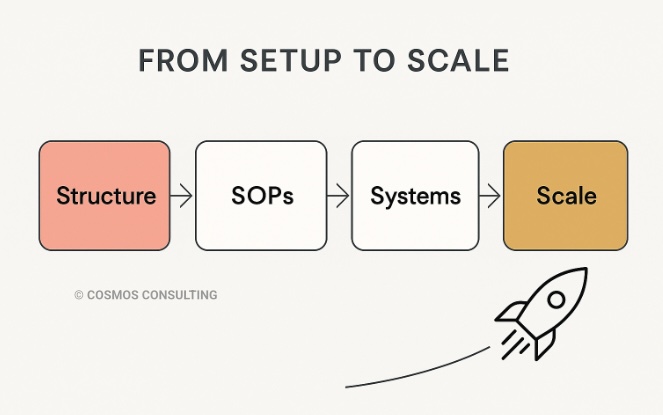
At Cosmos Consulting, we see scale as the culmination of the first three S’s in the 4S Framework:
- Structure gives every team member clarity on roles and responsibilities
- SOPs create consistency in how things get done
- Systems bring visibility, so you can spot gaps and course-correct early
These are not growth tactics. They are growth enablers.
They prepare your business to handle more without becoming more dependent on you.
Without clear Structure, SOPs & Systems, scalability becomes wishful thinking, not a business outcome ➤ what scaling means in business.
Let us be honest: many founders try to skip this part.
They jump straight to scaling, adding software, hiring more people, or chasing larger deals.
But without readiness, growth just amplifies the mess.
Workload increases. Errors multiply. Burnout follows.
It is not scale; it is strain.
Founders who scale SME operations without burnout do it by building systems, not just hiring faster.
💡 Real-World Example (Consulting SME):
A boutique consultancy wanted to onboard three new retainer clients.
But before implementing the 4S Framework, every project ran through the founder. Proposals, timelines, and quality checks – all needed her eyes.
After working through Structure, SOPs, and Systems:
- Roles were redistributed.
- Proposal templates and delivery checklists were documented.
- A project tracker was introduced with weekly team reviews.
As a result, the founder didn’t need to chase timelines or quality anymore.
The team operated independently.
The new clients came in, and the business scaled without stress.
🔄 What Smart Scaling Looks Like in Practice
Once your business is structured, your processes are documented, and your systems are in place, scaling is not something you chase. It is something you unlock. To scale SME operations without burnout, start by removing approval bottlenecks
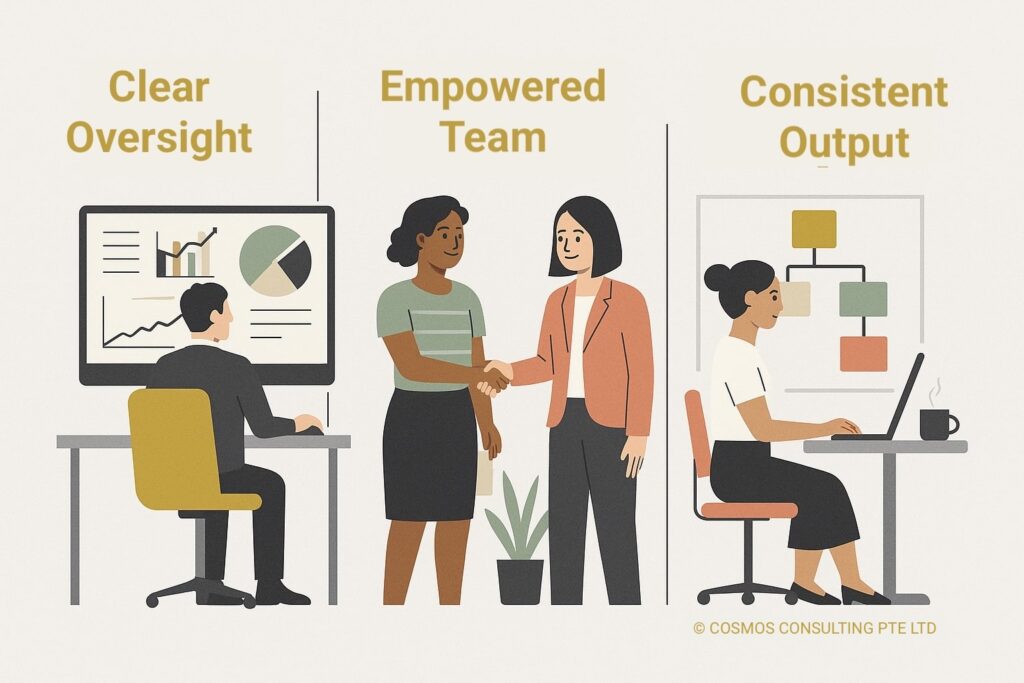
Here is how scaling actually plays out in a well-prepared SME:
✅ 1. Rhythms Replace Reminders
You are no longer the human alarm clock.
The business runs on rituals, not memory.
- Weekly reviews surface blockers before they escalate.
- Dashboards are part of team huddles, not buried in bookmarks.
- Everyone knows what “on track” looks like.
Instead of chasing updates, you are simply reviewing outcomes.
Example (Service SME):
A small creative agency introduces Monday standups and a Kanban tracker visible to the whole team.
Workload is balanced. Bottlenecks are flagged by the team, not the founder.
The rhythm takes over. The founder steps back.
✅ 2. Execution Is Owned by the Team
Tasks don’t sit idle waiting for approvals.
Your team knows what “done right” means, and they move.
- SOPs give them confidence
- Tools track progress
- Feedback loops are embedded
This is not abdication; it is intelligent delegation.
Example (Manufacturing SME):
Previously, the founder had to approve every supplier PO.
After SOPs and thresholds were introduced, the procurement team could self-authorise within clear limits.
Founder oversight dropped by 70%. Accuracy and speed improved.
✅ 3. Your Role Evolves from Approver to Enabler
As scale kicks in, you stop being the system and start building the next layer of strategy.
- You mentor team leads instead of managing tasks
- You think in weeks and quarters, not hours and emails
- You focus on growth, partnerships, and business direction
The founder becomes the architect, not the operator.
❓Frequently Asked Questions
✅ Conclusion: Ready to Scale or Still Holding the System Together?
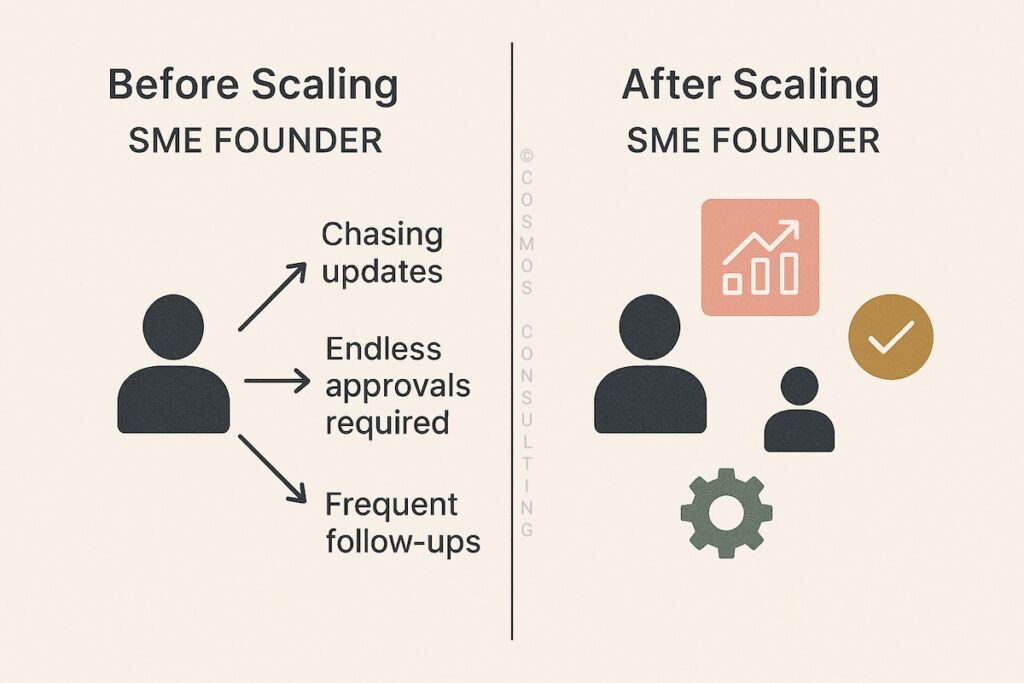
Let us be honest.
If you are still:
- Approving every decision.
- Reminding the team to follow through.
- The only one with a full view of what’s going on.
Then you are not scaling.
You are just holding things together… more tightly, more often, and with more effort.
But if you have:
- Structured your business with clarity.
- Documented the way things should run.
- Built systems that surface what matters.
Then you are not just ready, you are already primed to scale.
Scale is not a phase you push. It is the momentum you unlock.
It is when your business expands without expanding chaos.
That is the power of the full Cosmos Consulting’s “COSMOS 4S SME Systems Framework™”, and why “Scale” is the natural result, not a forced strategy.
🔧 Ready to Make the Shift?
If this post hit close to home, you’re not alone.
Most growing SMEs hit the same wall:
“I’ve built a good team and systems, but I still still making all the decisions.”
✅ If you have been wondering how to scale an SME, the first step is clarity. Download the COSMOS 4S Systems Framework™ Checklist, a free, practical tool to help you spot the gaps in your structure, SOPs, systems, and scalability.
Get the 4S & 5R Checklists
Download this and other free templates from the
COSMOS Resources Vault.
SOP Starter Kit • 4S Checklist • Dual Framework Guide • Ready Reckoners
📥 Call to Action
💬 Or drop a comment below:
Where are you on the 4S path? What would “Scaling without the Stress” look like in your business?
To scale SME operations without burnout, you need more than motivation; you need systems that let the business run without you. Download the free 4S Checklist and start scaling safely
🛡 Trademark Notice
The COSMOS 4S Systems Framework™ and COSMOS 5R Leadership Framework™ are proprietary tools developed by Chhavi Jain, Director, Cosmos Consulting. These frameworks are unregistered trademarks (™) and may not be copied, reproduced, or repurposed without explicit written permission.
© Cosmos Consulting, 2025. All rights reserved.


